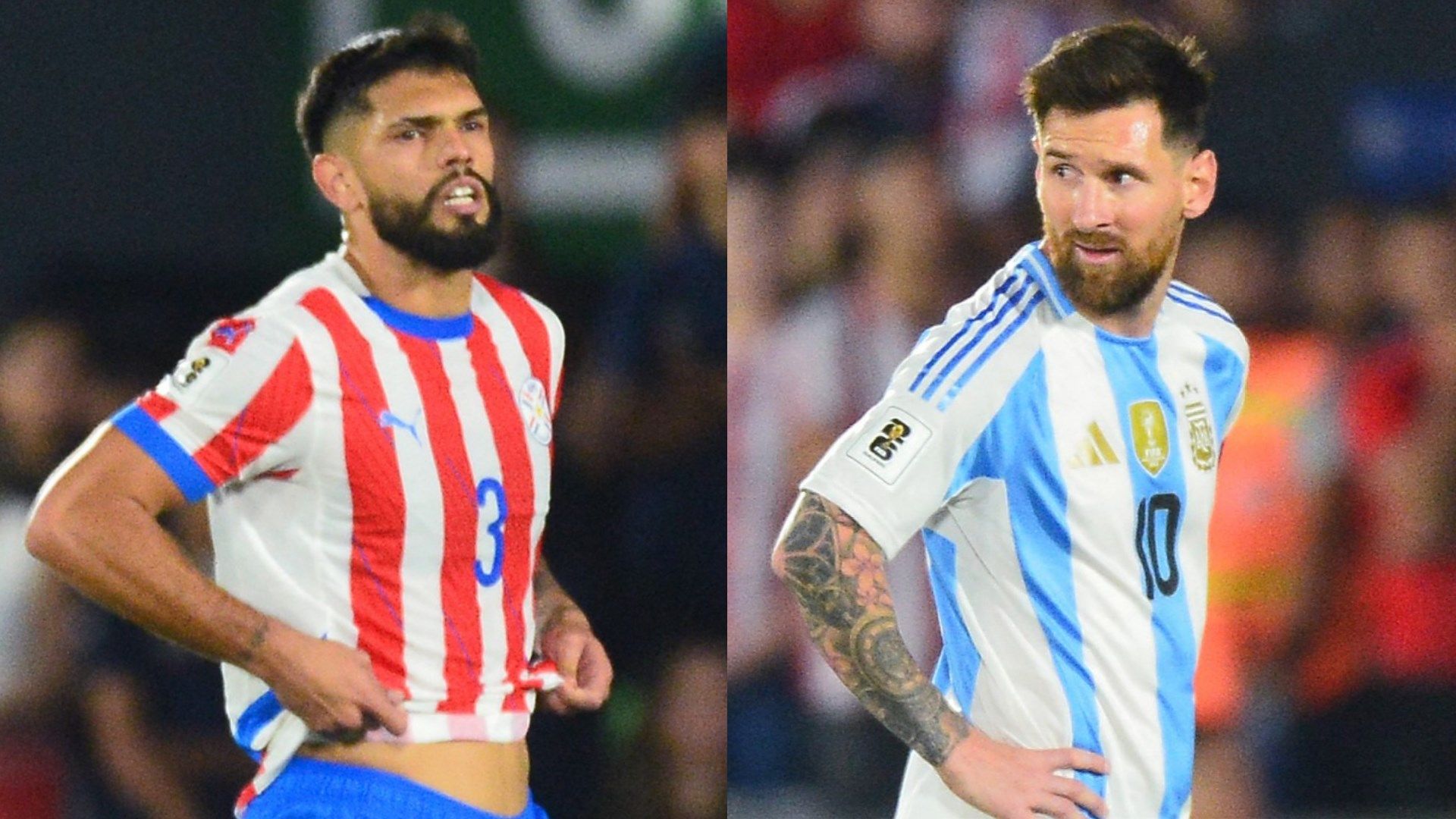Paraguayan defender Omar Alderete has extended a public apology to Lionel Messi following a contentious World Cup qualifying match that saw the Argentine icon subjected to hostile behavior from fans and engaged in a heated exchange with the referee. The incident, which occurred during Paraguay’s surprising 2-1 victory over the World Champions, has sparked significant discussion about respect in football and fan behavior.
The match at Estadio Defensores del Chaco, which dealt Argentina their third defeat in the qualifying campaign, was marked by several controversial moments involving the eight-time Ballon d’Or winner. The tension reached its peak when Paraguayan supporters targeted Messi with bottles while he attempted to take a corner kick, prompting Alderete’s unprecedented public statement of contrition.
Taking to Instagram, Alderete penned a touching message that transcended national rivalries: “Dear Leo Messi, I want to apologize on behalf of my country for the unfortunate incident in which someone threw a bottle at you. You are an idol for millions here and around the world.” The Getafe defender’s words carried particular weight as he emphasized that the disrespectful act failed to represent the genuine admiration Paraguayans hold for the football legend.
The match itself was a tale of frustrated ambitions for Argentina, who saw their early advantage through Lautaro Martinez’s opener slip away when Antonio Sanabria equalized. Alderete himself would later complete Paraguay’s comeback with a decisive goal after halftime, inflicting a rare defeat on the reigning world champions..jpg?auto=webp&format=pjpg&width=3840&quality=60)
However, the sporting narrative was overshadowed by two significant incidents involving Messi. The Inter Miami star, who endured a challenging evening on the pitch, found himself repeatedly on the receiving end of robust challenges from Alderete. His complaints to referee Anderson Daronco fell on deaf ears, leading to a heated moment where cameras caught Messi expressing his frustration directly to the official, reportedly stating, “You are a coward, I don’t like you.”
The situation escalated further when local fans targeted Messi during a corner kick attempt, hurling bottles in his direction. This ugly scene prompted Alderete’s intervention through social media, where he specifically mentioned that such behavior was particularly regrettable given Messi’s status as an idol “especially for Fede,” highlighting the personal nature of his apology.
The incident has sparked broader discussions about the treatment of visiting players in South American football, particularly iconic figures like Messi who, despite their rival status, command respect across national boundaries. Alderete’s apology serves as a reminder of the fine line between passionate support and unacceptable behavior in football.
For Argentina, the defeat represents more than just three points lost in their World Cup qualifying campaign. It marks their third consecutive game without a victory, an unusual streak for the reigning world champions. The team now looks ahead to their upcoming clash with Peru on November 19, where they’ll aim to break this concerning run of form.
The episode also underscores the unique position Messi occupies in world football. Even in defeat, and even as an opponent, his status as a global icon demands a level of respect that transcends traditional sporting rivalries. Alderete’s public apology acknowledges this reality, serving as a diplomatic bridge between two proud footballing nations.
As the dust settles on this controversial encounter, the focus shifts to how both teams will move forward. For Paraguay, Alderete’s gesture helps maintain positive relations with their prestigious neighbors, while for Argentina and Messi, the challenge lies in regaining their winning momentum as they continue their journey toward World Cup qualification.
The incident serves as a reminder that while football remains a deeply passionate sport in South America, there’s a line between fervent support and unsportsmanlike conduct that shouldn’t be crossed, even in the heat of crucial World Cup qualifiers. Alderete’s response demonstrates that accountability and respect can coexist with fierce competition on the field.




